New head of Swiss Covid-19 taskforce: ‘We’re in a very difficult situation’
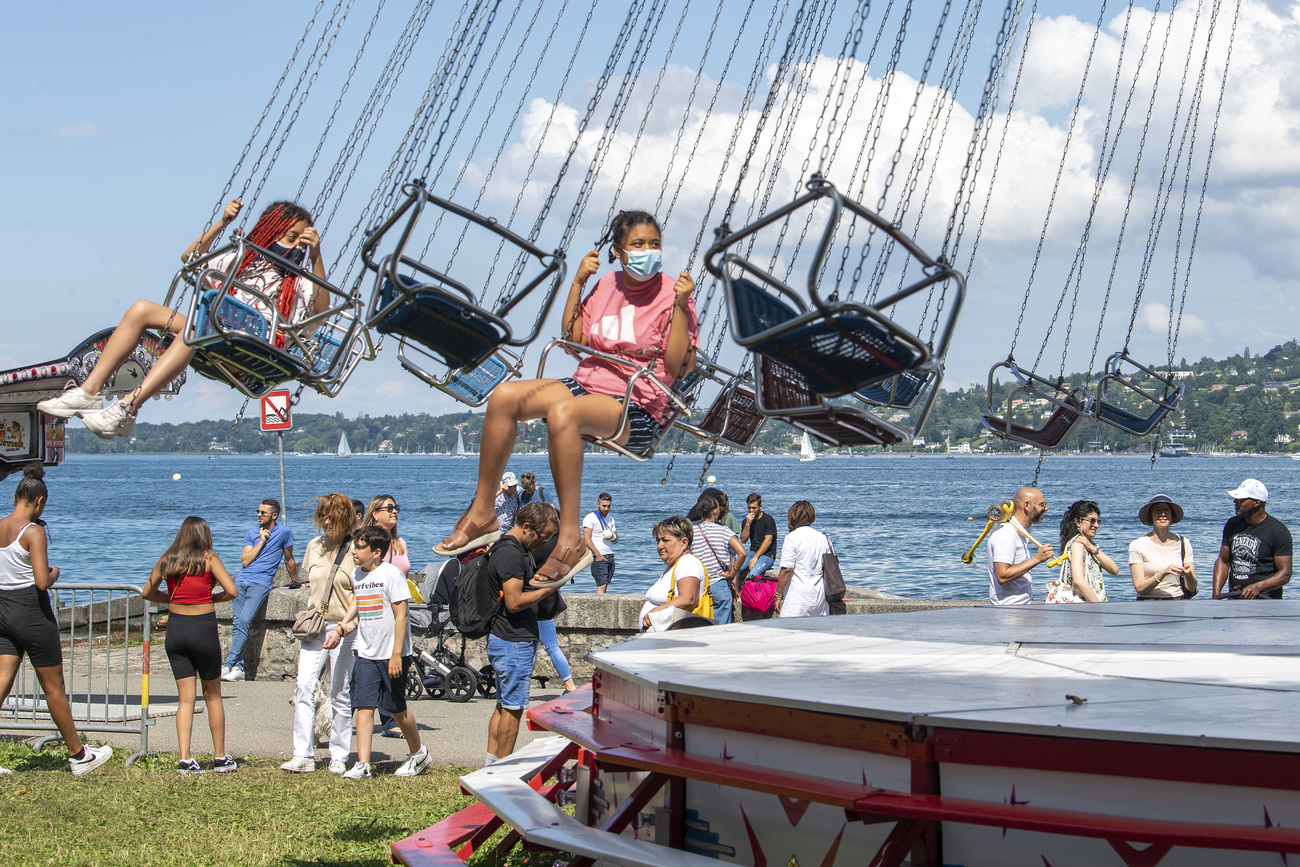
Tanja Stadler takes over as head of Switzerland’s Covid-19 science taskforce at a time when new cases have rebounded to over 3,000 a day, hospitalisations are up, and the vaccination campaign is flagging.
Since the end of June, the number of new reported coronavirus infections has been rising in Switzerland. The growth is largely due to the highly infectious Delta variant affecting unvaccinated people, mainly in the 10-to-29-year-old age group.
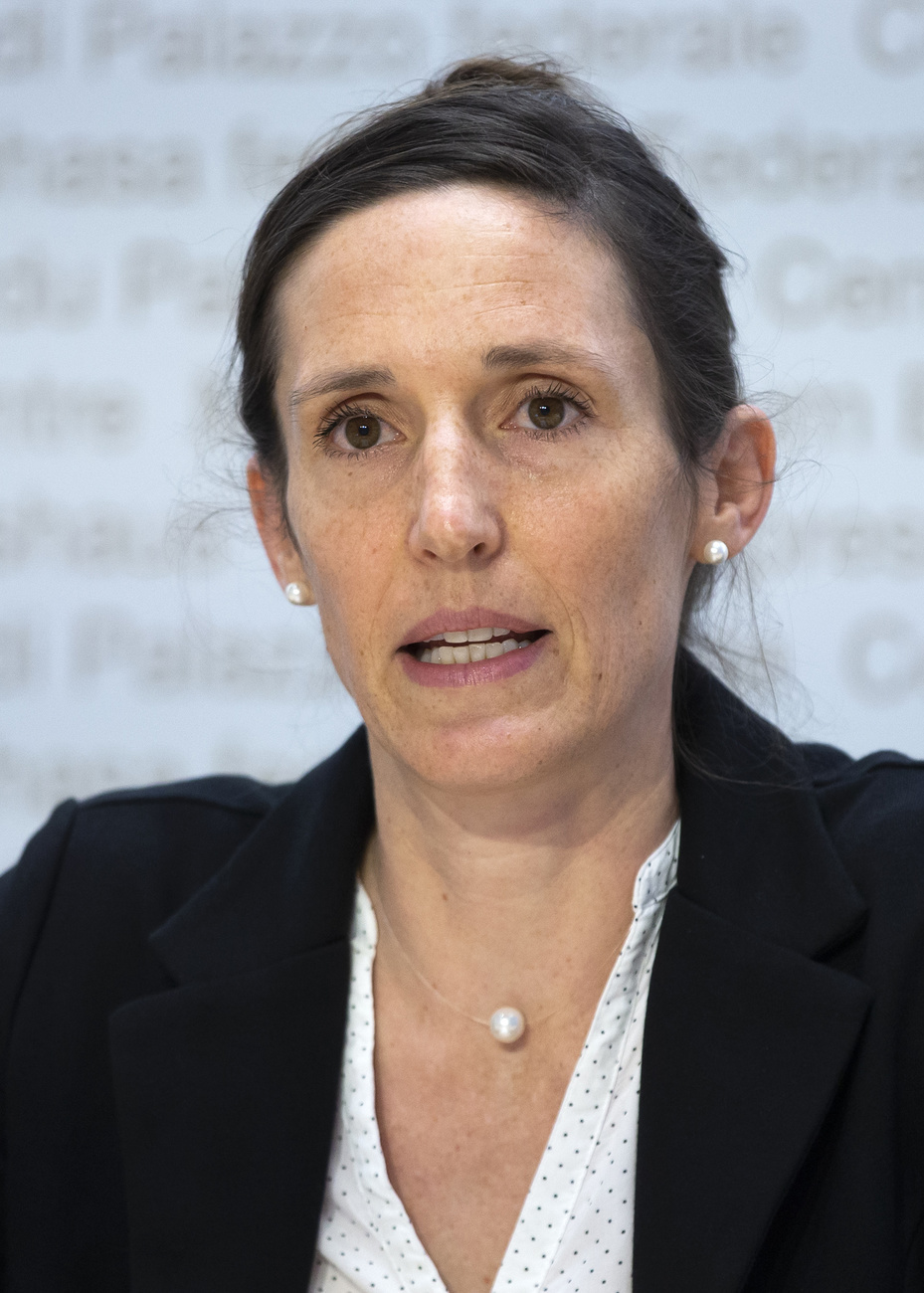
On Tuesday, it was reported that 500 people were being treated in Swiss hospitals for Covid-19. Around 70% of intensive beds are occupied, 14% by Covid patients. The number of Covid-related deaths remains at a low level.
Tanja Stadler talked to Swiss public television SRFExternal link on August 17 about the challenges ahead.
SRF: On Tuesday, the Federal Office of Public Health reported 3,150 new infections over the previous 24 hours – the highest daily figure this year. What’s your reading of the current situation?
Tanja Stadler: It shows that, despite being in a ‘normalisation phase’, we are in a very difficult situation. Thanks to vaccinations, we have managed to reduce the number of people going to hospital [with Covid] because many are protected by the vaccine. But there are still many people who are not vaccinated. And if we look at the number of hospitalisations, in the past month hospital admissions have doubled three times, so in total they have increased eightfold.
SRF: But hospital admissions remain at a very low level…
T.S.: They started at a very low level, but we now have a seven-day incidence of just under 30 new daily hospitalisations. And if that doubles again three times in the next month, then we will be at the same level as during the worst period of the second wave [last autumn]. Back then there was a very heavy load on the hospitals.
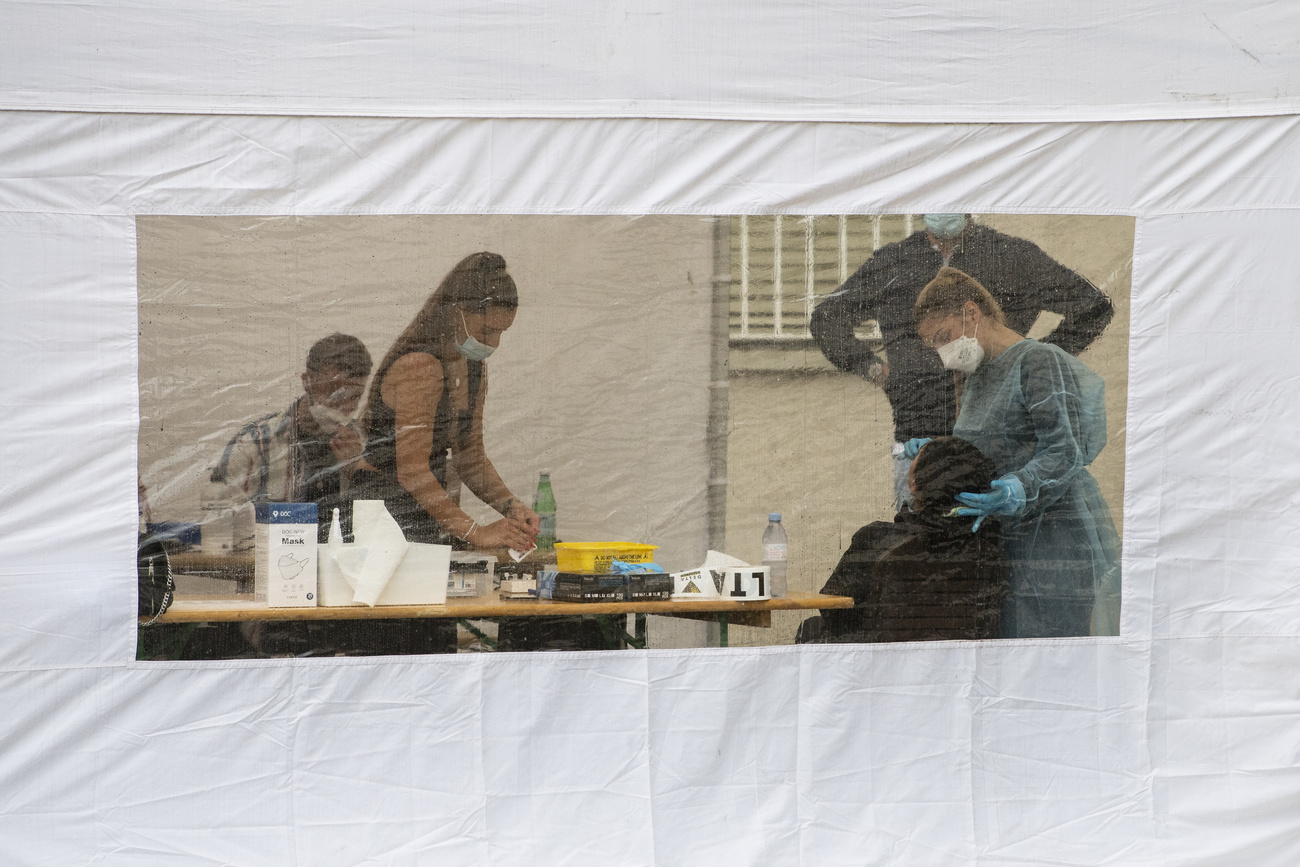
More
Health officials cautious about climbing Covid case numbers
SRF: So, you are clearly saying that there is a fourth wave coming, and that it will be a violent fourth wave.
T.S.: The problem now is that we have a dynamic that is growing rapidly. Each week the epidemic grows by 50%. The question is: Can it be slowed down? People are now coming back from their holidays; it’s the start of school and autumn is coming soon. If you remember last year these factors did not help to slow things down.
SRF: Just over half of the Swiss population is fully vaccinated (two doses). That is not enough to stop the fourth wave. What should be done to increase the vaccination rate?
T.S.: It is very important to make people understand that there is a choice between getting vaccinated and becoming infected over time. We must keep in mind that the risk of ending up in hospital has not decreased for someone who has not been vaccinated [against Covid].
Quite the opposite, in fact. We now have new variants, which means that the risk for an unvaccinated person of going to hospital has doubled compared to the first wave.
The taskforce, created by the federal government in March 2020, will continue to make scientific information available to decision-makers. Its goals have been adjusted, however. Up to now, its main goal had been to protect the population from getting infected until they could get vaccinated.
Now that vaccines are available to everyone from the age of 12, the three new goals are:
- to prevent the health system from getting overloaded.
- to protect children under 12, who are not eligible for a Covid vaccine in Switzerland. “The virus is less dangerous [for them] than it is for adults, but children can also suffer the consequences of a pandemic,” said Stadler.
- to protect people with weak immune systems.
The Covid-19 science taskforceExternal link has been scaled back in size from 70 experts to 25. But it now includes experts in fields such as paediatrics, doctors specialising in infectious diseases and mental health in children.
SRF: Some cantons want to encourage 12-18 year-olds to get vaccinated at school. Does that make sense?
T.S.: We’ve heard that in some cantons it is not that easy for young people to get a vaccination appointment. Therefore, it makes sense to make it as easy as possible for everyone to get vaccinated. This way, if you are against it, you have to actively refuse a vaccination, and there are no obstacles in the way of getting a vaccine.
SRF: One of the taskforce’s new goals is that children under 12 who cannot get vaccinated should be better protected. You talk about CO2 filters, air filters and regular testing as possible solutions. These are all measures that the cantons and communes are not using right now, or only sparingly. Are you calling for more such prevention measures?
T.S.: We believe that there are measures that are not invasive at all. For children it makes no difference at all whether there is a CO2 sensor or an air filter in place. It costs something for taxpayers, but compared to what we’ve spent so far, it’s very little. Our approach is to immediately implement everything that is not invasive, because that is the only way to keep schools open with as little virus circulating as possible.
Relations among scientists, politicians and the public in Switzerland have not always been easy.
In January 2021, epidemiologist Christian Althaus quit the national Covid-19 taskforce. He criticised politicians, saying they should learn to treat science on an equal footing. His frustration stemmed from government ministers’ annoyance at certain taskforce findings and advice calling for tougher measures.
Althaus was not the first member of the scientific team to resign. In June 2020, Matthias Egger, then head of the taskforce, warned publicly that it was too soon to relax restrictions, advice that was not followed by the government. Egger resigned a month later.
Outgoing taskforce head, Martin Ackermann told the Neue Zürcher Zeitung (NZZ) newspaper that “the level of stress was far beyond what I’d known previously”. He gave a mixed assessment of the government’s management of the crisis. At the start of the pandemic in the spring of 2020, Switzerland reacted quickly with effective measures, which were widely supported, said. In the autumn, however, the number of Covid-19 cases increased rapidly and the response was too hesitant. By acting sooner, the burden on the health system would have been cut by about half, he said.
“Far fewer people would have fallen ill and far fewer would have died.”
This year, Ackermann noted that the epidemic was contained by more moderate measures than in neighbouring countries.

More
Coronavirus: the situation in Switzerland

In compliance with the JTI standards
More: SWI swissinfo.ch certified by the Journalism Trust Initiative








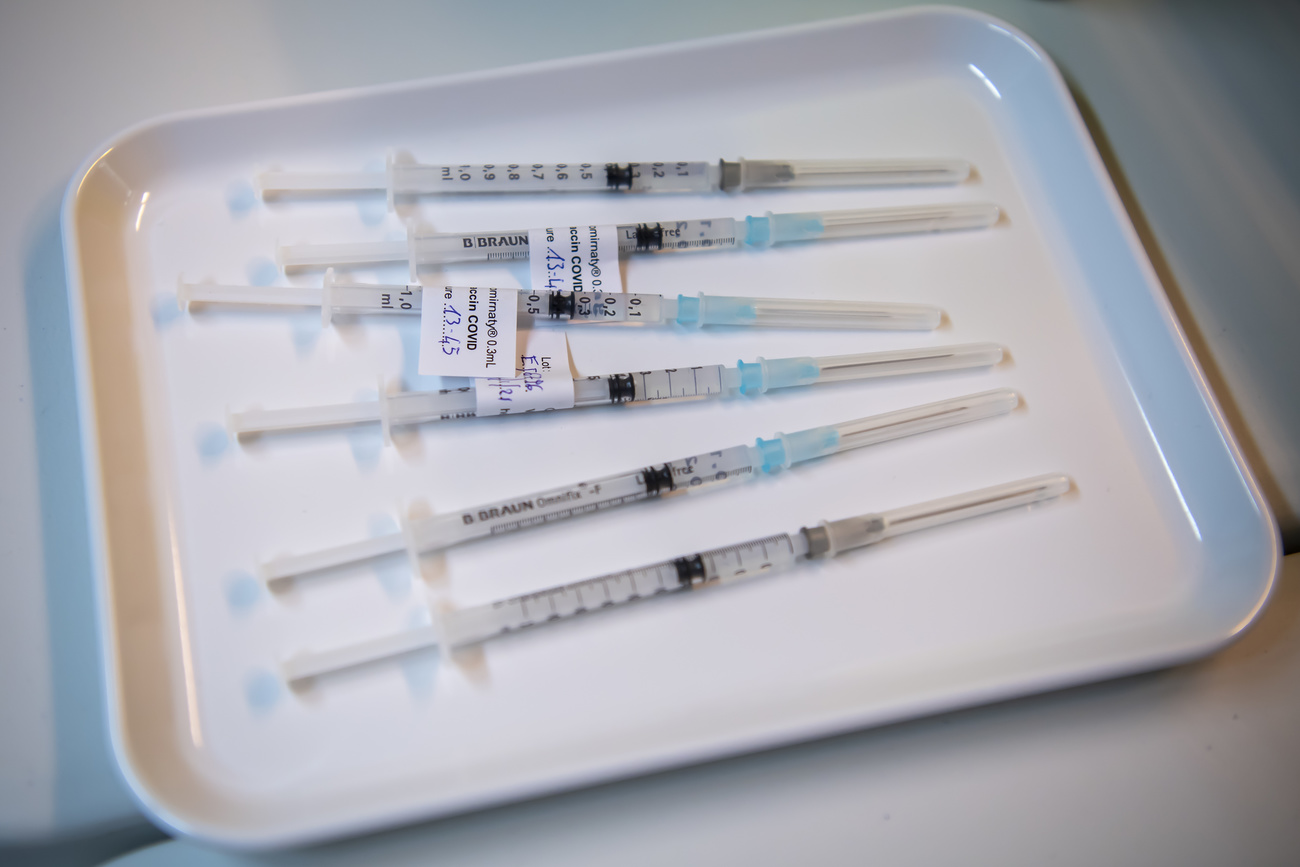
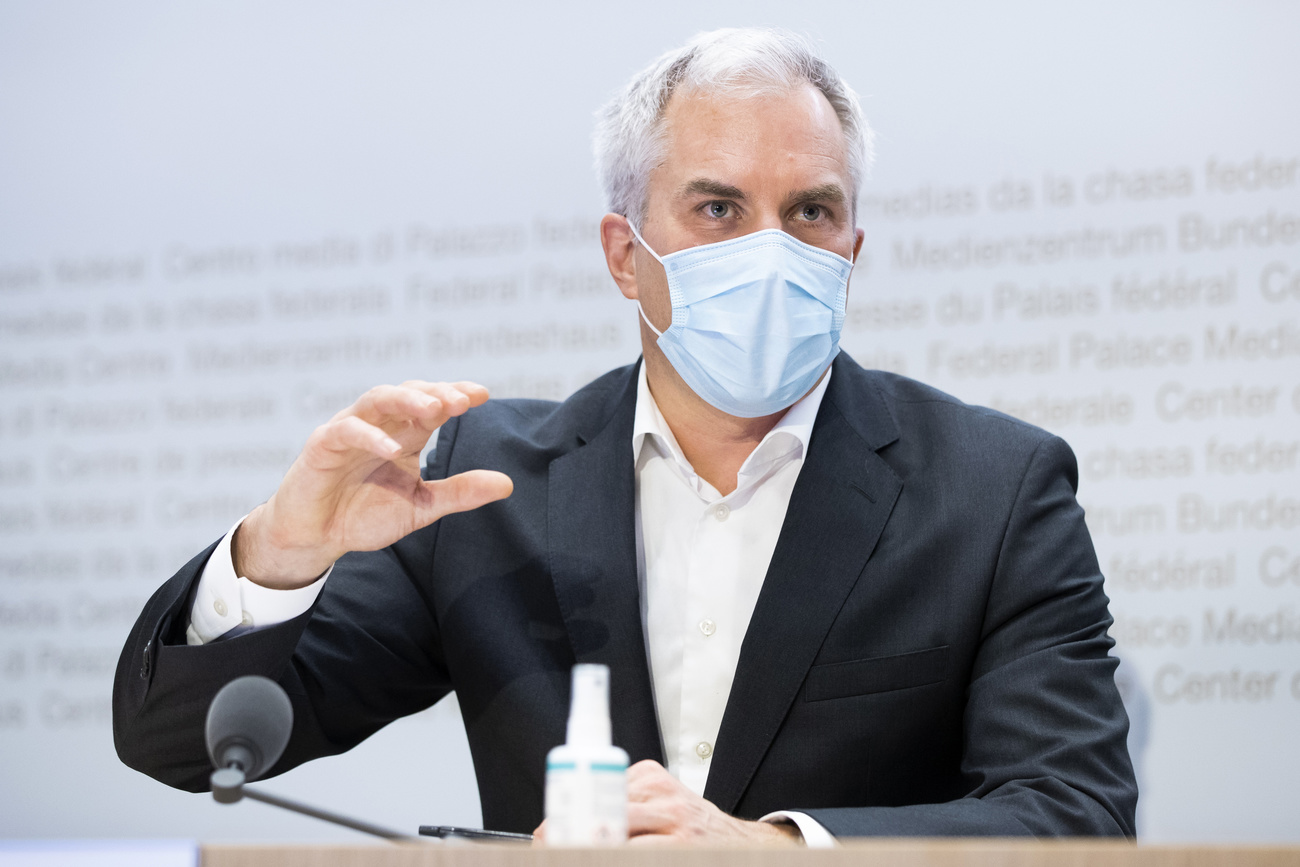
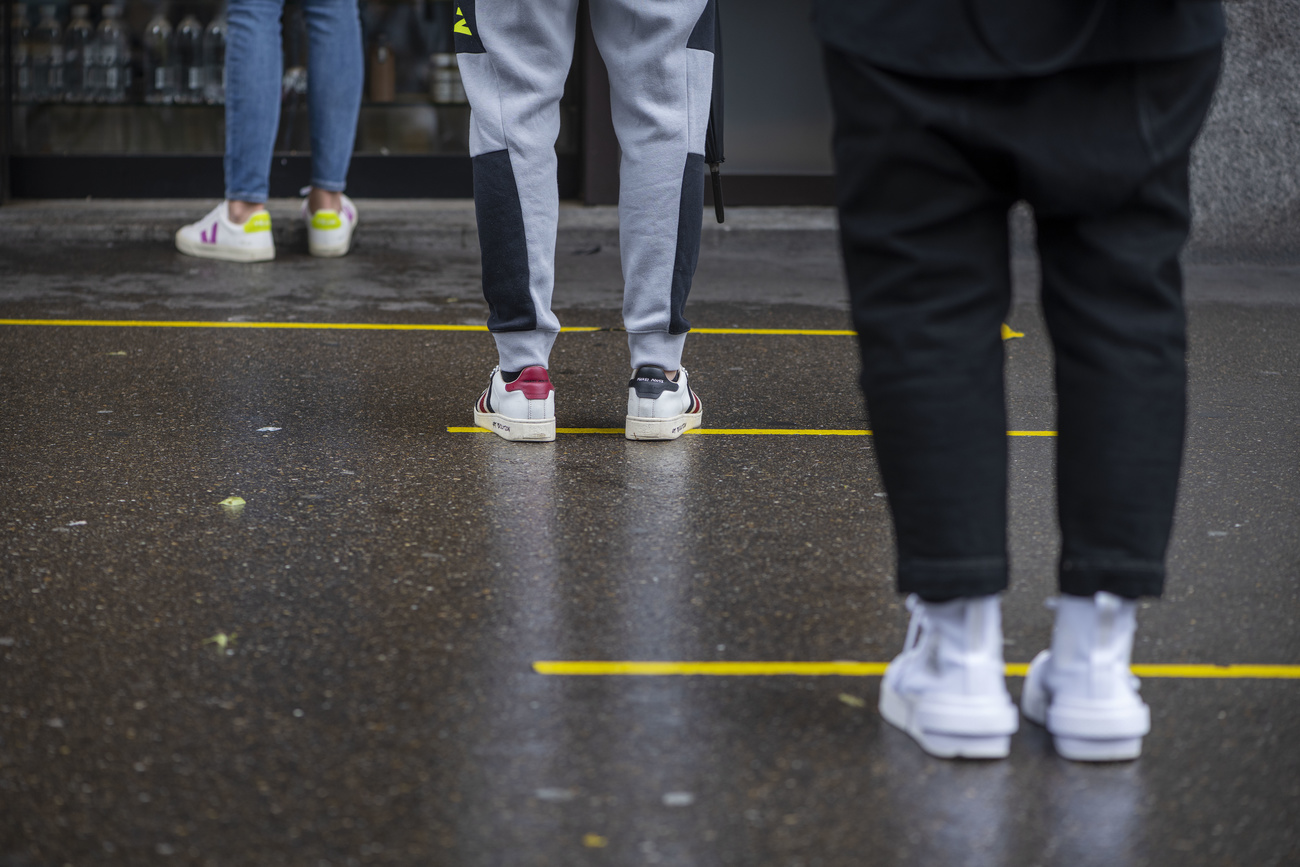
You can find an overview of ongoing debates with our journalists here . Please join us!
If you want to start a conversation about a topic raised in this article or want to report factual errors, email us at english@swissinfo.ch.